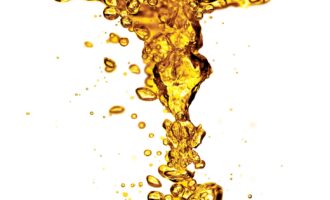
Lubricants sustainability and the reindustrialisation of Europe
There is much talk about sustainability in today’s world with growing recognition of the need to live in a way that supports the long-term health of the planet while continuing to meet the needs of the present. However, discussion on sustainability is often reduced to technical issues and solutions. Real sustainability requires a shift in our understanding. The set of values guiding the economic world needs to change significantly, says Lutz Lindemann, former chief technology officer (CTO) of FUCHS SE.
FUCHS announced the retirement of Lindemann in December 2022 after 24 years of service. Lindemann was a member of the executive board at the German multinational lubricant manufacturer since 2009. He continues to act in a consultancy capacity for FUCHS.

Lindemann was the first speaker at the inaugural NEXTLUB International Conference on Tribology and Sustainable Lubrication, held in Düsseldorf, Germany from April 18–19, 2023. In his keynote address, Lindemann provided an overview of Sustainability in the Lubricants Industry—Challenges and Opportunities where he spoke of the urgent need to do something in a coordinated way, amidst a backdrop of volatility.
We cannot organise solutions in an ordinary way to reach our targets, says Lindemann. Our efforts must include technical ecological solutions, financial and social considerations, he says.
Multiple geopolitical factors are affecting the world economy at the same time as we pursue a more sustainable future. Lindemann highlighted the ongoing impacts of China’s long-held zero-Covid strategy, Russia‘s war against Ukraine, China’s new self-understanding and the U.S. Inflation Reduction Act (IRA) with its impacts on investment in industrial activities in the United States. The FUCHS consultant also noted the considerable impact of the higher costs of raw materials, freight, energy and salaries. Supply shortages remain, and there are constraints relating to energy infrastructure and sustainability inflation. These global occurrences are creating a regionalisation shift with interconnectivity starting to deteriorate.
Lindemann outlined four key areas of focus in the lubricant industrial environment in Europe. Efficiency is a key contribution of European sustainability efforts. Ongoing efficiency improvements include synthetic raw materials and new additive technologies. A shift to a more circular approach should include used oil collection, higher quality re-refined base oils, circular approaches for packaging, and life cycle assessment (LCA) standards.
For Europe to become more independent, heavy industry needs to come back to the region. Lindemann emphasised the need to re-industrialise Europe in heavy industry (such as aluminium, magnesium, silicon and steel), mining wherever possible, and he called for the chemical industry to drive the process through the development of new materials and molecules.
Lindemann noted that the refinery landscape will change drastically in Europe and a dying refinery scene will impact the entire value chain. The origin of raw materials will shift with biomass-based raw materials and hydrogen-driven technologies.
Europe is a sustainability pioneer, with 40% of green technology coming out of the region. A strong regulatory framework has been credited with advancing the transition to a more ethical future. The European Green Deal, published in December 2019, is the driving force of Europe’s transition, although Lindemann also mentioned the important role of sustainable finance and European Union (EU) taxonomy.
During his presentation, Lindemann outlined several key elements of the European regulatory landscape, including a new Carbon Border Adjustment Mechanism (CBAM) that was formally approved by the Council of the European Union on April 25, 2023. The transitional phase of CBAM comes into force on October 1, 2023, before becoming permanent on January 1, 2026.
The policy is designed to tariff emissions-intensive imports and encourage cleaner industrial production in non-EU countries—balancing decarbonisation costs between the EU and other countries. Initially, CBAM will apply to certain carbon-intensive goods and selected precursors at the highest risk of carbon leakage, such as cement, iron and steel, aluminium, fertilisers, electricity and hydrogen. Importers will be required to declare imported goods and embedded greenhouse gases. Europe is a world leader in tackling emissions with some of the most stringent environmental legislation. Political leaders have signalled that Europe is not going to pay for the climate clean-up on its own.
Lindemann also provided details on the draft EU Supply Chain Law. The proposed legislation is similar to the Supply Chain Duty Act passed by Germany on June 11, 2021—albeit more far-reaching. The European version aims to regulate social and environmental impacts along the entire value chain. Key areas include the protection of human rights—through prohibition of child and forced labour, discrimination, the stipulation of minimum wages and work safety. Environmental issues that impact human rights, such as waste treatment, are also addressed.
An elevated corporate responsibility also includes a company’s direct and indirect suppliers, products and services. The draft EU Supply Chain Law was adopted by the European Council in December 2022 and is awaiting the European Parliament’s agreement, which is expected in May 2023.

Small and medium enterprises are excluded from the proposed legislation. The directive applies to organisations with more than 500 employees and a turnover of at least EUR150 million (USD165 million), both within and outside of Europe. Higher-risk sectors have a lower threshold of 250 employees and EUR40 million (USD44 million) in turnover.
The EU Supply Chain Law includes legal and compliance obligations relating to risk management, preventative measures, remedial measures, complaint procedures and reporting obligations. Fines are possible for violations of the law including up to 2% of annual sales and the potential exclusion from public procurement for up to three years.
Finally, Lindemann detailed the impacts of Europe’s Chemicals Strategy for Sustainability (CSS) on the lubricant industry. CSS is a new long-term vision for the EU chemicals industry and strives to create a toxic-free environment. Key objectives include: Innovating for safe and sustainable EU Chemicals; strengthening the legal framework to address pressing environmental and health concerns; simplifying and consolidating the EU legal framework; building a comprehensive knowledge base on chemicals; and setting the example for global sound management of chemicals.
The CSS was published on October 14, 2020. Lindemann believes the strategy will have a significant impact on businesses. The lubricant industry in Europe comprises around 8,000 molecules and approximately 6.5 million tonnes. However, Lindemann believes approximately 30% of traded chemical substances will disappear, including many raw materials, as a result of the CSS. The number of substances of concern will increase and substitution with “green raw materials” will be necessary. There will also be increasingly complex compliance requirements and a greater emphasis on a circular economy, he says.
As Europe continues to face energy shortages, a distorted raw material supply, geopolitical turmoil and a heavy climate change impact, achieving real sustainability seems a long way off. In the short term, our focus needs to be on stabilising the political environment, preparing for a recession and safeguarding the energy supply, says Lindemann. In the mid-term, attention will shift to investing in green technology, and the reindustrialisation of Europe—while maintaining competitiveness, and continuing to maintain political stability in Europe.
Lindemann also emphasised the importance of industry and associations coordinating and aligning stakeholder interests. There is a need for new standards and frameworks and a clear vision forward on how to establish the regulatory system in a stepwise approach on a longer time scale to handle the transition, he says. Politicians and authorities need to understand the consequences of political methods on industry.







